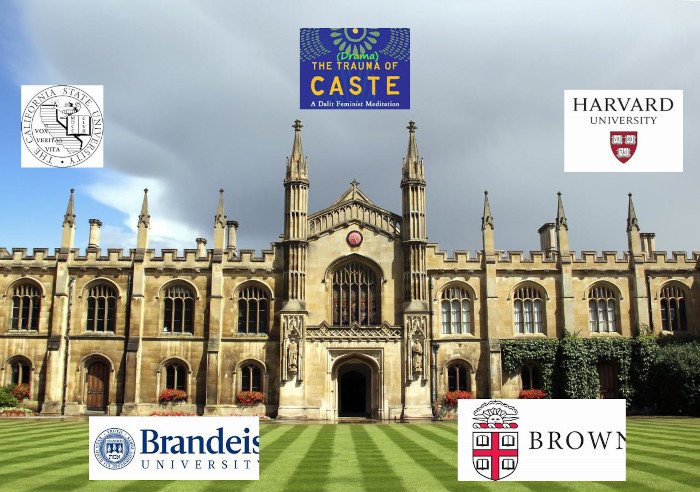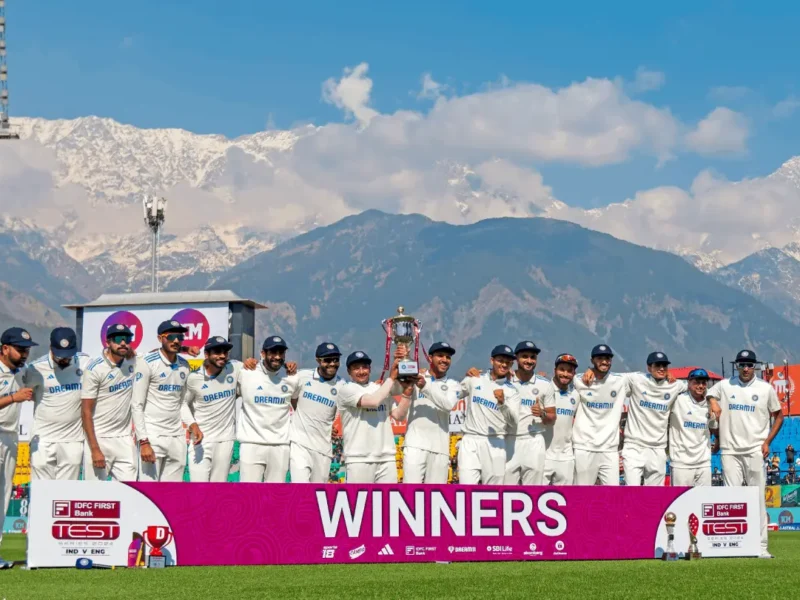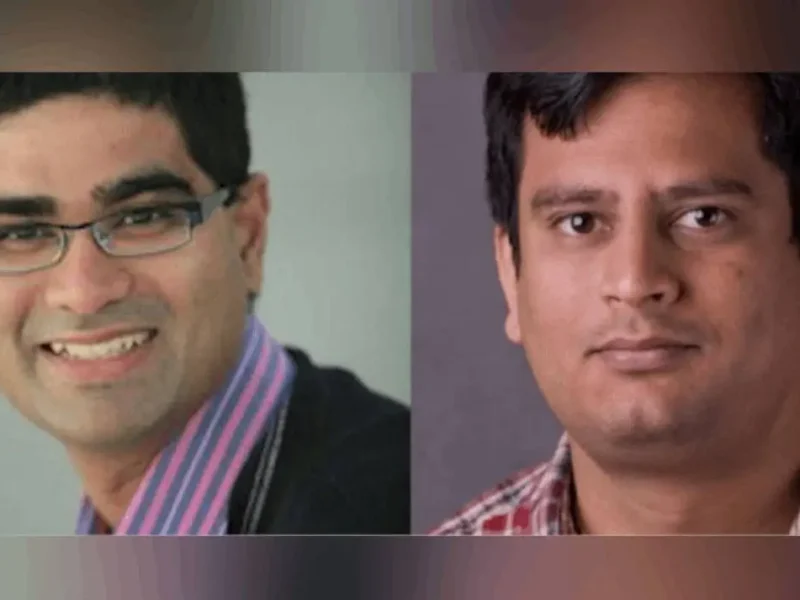The Caste Train And The Witch Hunt of Hindus
By Nikunj Trivedi
In June 2020, news broke that the California Civil Rights Department (CRD) had sued technology giant Cisco Systems for alleged caste discrimination by two managers against a Dalit employee. Effectively, an American state body tried to define religious beliefs, claiming that the caste system was an integral part of Hinduism. It even assigned religion to an individual based on its own assumptions about his beliefs or last name.
Besides deploying unconstitutional methods, the CRD attorneys and officials fell into a cleverly laid trap by groups such as Equality Labs, whose faulty survey was the sole basis of determining the prevalence of caste discrimination in California. This same survey has unfortunately become the foundation for a host of caste laws and policies from Seattle to Cal State University, UC Davis, Brandeis, and even Harvard. Even the California Progress Democratic Party adopted a policy against caste discrimination in 2021. The latest addition to the “caste train” is State Senator Aisha Wahab, who introduced a caste bill in the state of California.
Interestingly, as opposition from the Hindu and Indian American communities ramped up since 2020, the language of each of the bills and policies started to change. The Cisco lawsuit and the UC Davis resolutions pointed to Hindu sacred scriptures such as the Rigveda as the genesis of caste discrimination, while later policies masked the anti-Hindu intent with the “South Asian” camouflage.
Even in Seattle, one of the initial drafts of the ordinance used Hindu symbolism and references. It eventually dropped the direct accusation by adding “South Asia” and other countries from Africa, Japan, etc. to make the bill more palatable to mainstream audiences and mask over discrimination against Hinduism. However, one constant remained – data from Equality Labs – revealing the inherent bigotry of these policies. After all, Equality Labs has gone on record advocating for the dismantling of Hinduism and Hindu festivals such as Holi.
But, I am secular and don’t believe in caste
Many Hindu and Indian Americans I speak with, are unaware of these policies and social campaigns. They are certainly unaware of the impact that such laws can have on them.
Two statements often come up. First– surely there must be caste discrimination and thus so many officials and universities are taking action. And second– surely this can’t happen to me because I am against caste discrimination, I’m not really “religious”, just “secular.”
Their beliefs echo that of Sundar Iyer, a graduate of IIT Bombay, who rose to senior levels in Cisco and became quite wealthy. At the same time, he was open about his secular or irreligious nature, penning a blog in the early 2000s denouncing organized religion, distancing himselffrom what he called casteist ceremonies, and declaring himself an atheist. Even more, Mr. Iyer was a champion of equality and offered all top three jobs in his team to Dalits. He went further and rewarded “John Doe” (who went on to sue him) stocks worth millions of dollars and recommended another Dalit for his own position at Cisco.
And yet, Mr. Iyer was sued in the most egregious manner, becoming the poster boy for so-called caste discrimination in the US. He lost his job at Cisco and found his reputation trashed.
Even after three years of litigation, the CRD has not been able to prove that there was caste discrimination at Cisco. But, today’s far-left social justice environment, fueled by the flames of propaganda rather than truth, has already declared Mr. Iyer guilty and touts the unproven Cisco case as a landmark example of caste discrimination. There are thousands and thousands of references to the case in the media, academia and in new laws and policies passed by universities and the city of Seattle.
Seattle’s and California’s attempts to ban caste discrimination are being touted as “civil rights issues.” Besides the Equality Labs survey and anecdotal individual stories, there hasn’t been a single reliable source demonstrating that this is a widespread issue in California or in America. What’s worse, data from one reputed institution – Carnegie Endowment for International Peace – which challenged the Equality Labs Survey – is ignored in these high-profile deliberations.
The potential impact
Imagine that you are a manager, a CEO or an entrepreneur. You can be sued for caste discrimination if one of your disgruntled employees claim they were fired or not offered a promotion because they were of “low caste” when the decision was purely based on performance issues (as was the case in Cisco). How would the HR department determine someone’s caste from the thousands that may exist in South Asia? Will the company simply make a decision to hire fewer Hindu or Indian managers to avoid dealing with “caste issues,” especially because of the extremely complex and vague nature of this legal category?
Imagine if you are a vegetarian of South Asian descent. You may simply choose to avoid restaurants serving meat or avoid dining with people who eat beef, per your religious and moral beliefs. Or, you simply choose to eat with a few people who also happen to share your ideas and upbringing. Can that be interpreted as caste discrimination? Never mind that other larger groups in the US show strong evidence of clustering with like-minded folks.
Imagine you are a professor. You can be sued for caste discrimination because you gave a student a bad grade or spent less time with one student over another (who then sues you by claiming he is “low caste”).
Imagine if you are a small business or motel owner who takes disciplinary action against an employee who then sues you for caste discrimination.
Imagine if you belong to an Indian or Hindu student organization on campus that doesn’t want to serve non-vegetarian food while celebrating Diwali, Navaratri or other religious festivals. Universities are becoming notoriously intolerant, as it is. The opportunity to punish someone under the newest civil rights legislation would leave one ostracized and traumatized, despite any malintent.
It doesn’t matter whether you are religious or not. In the wild, wild world of propaganda and trial by media, you could be the next Sundar Iyer. He had the financial resources to fight back and challenge the violation of his civil rights – most of us do not. The question then is – what can you do about it?
(Trivedi is the president and co-founder of CoHNA, a grassroots advocacy and civil rights organization dedicated to improving the understanding of Hinduism in North America and working on matters impacting the Hindu community.)






Andy Swarna
/
Caste is Hindu religious reality, social respect reality, political and economical reality. That’s why there are laws.
March 29, 2023Wherever Indian are there, there exists caste. An educated society cannot ignore this fact.
That’s why Caste needs to educated to students and management as employment.
khushboo
/
So you think South Asians or Hindus-are genetically different from all else? And you approve the profiling of communities. Thanks for exposing your hatred so openly
March 30, 2023Subhash Garg
/
No. Read the Wikipedia article, Caste System in India. I have read extensively about caste and most Westerners have been fed malicious colonial lies about it.
May 13, 2023Anil
/
I was disappointed to see resistance from the Hindu groups. Should have simply kept quiet and watched. The lower castes in the USA have much more to worry about color discrimination and breaking the glass ceiling.
As for the hiring process. As a hiring manager, and a person directly affected by the person being hired, I would ask an Indian with any degree to present their detailed exam results from high school to when seeking admissions. I would that way know if I am hiring the best. For example, a Dalit that entered Engineering on a quota would reveal low test scores in High School. I would then focus on how the person performed and improved through college. Guage his performance. And then decide if I will hire that person. I would weed out a person who got through with quotas and similar help. That would be a criteria for all including the US applicants.
I have faced it in the USA and have moved on to the next job. Done the job well and faced the same resistance and have again moved on. Each time I moved on, the company hired more people to replace me and my bosses I know did not like my leaving.
It is life. Don’t expect to see discrimination going away anytime soon. Obama, Kamala and the many elected have made things worse and not better.
March 29, 2023Nirmala
/
I am surprised that you think we should keep quiet. The caste system, which we are trying to eliminate even in India. You want to start it here. If you work in HR why would you check if the candidate got his education by quota or not. Do you check how US applicants got their admissions and if they got it through minority quota then you will not give them opportunity. You do not believe that people improve over time, you take someone’s high school grades to create their first impression in your mind. You look like a biased person to me. Not only that, but you believe in the caste system and want to blame it for your shortcomings. I never think about someone’s caste when I meet someone, you should try to do the same. Your mind set define the world around you. Please keep an open mind.
March 29, 2023Subhash Garg
/
Here are standardized tests such as GRE (advanced). All shortlisted candidates should take one of them. Simple.
May 13, 2023khushboo
/
Great article. Unjust bills and laws must be fought. The US has had all sorts of bills targeting one community or another in the past-and Hindus are the latest scapegoat. Slavery and the genocide of American Indians was also justified on the prevailing “morals” of the time, and todays crazed social justice warriors are exactly like those who conducted the Salem Witch trials, offering “spectral evidence” for guilt.
March 30, 2023Daljit (Dean) Singh
/
Let us not whitewash and assigned false narratives to the deep-rooted, centuries-old social system in South Asia. It is not peculiar to Indians only, it has become malignant in South Asian political, social, and economic systems. Caste is the benchmark for mobility among South Asians regardless of their living environments. Philosophically, most religions having roots in India continue to practice and follow caste guidelines in their everyday human interactions, including Sikhs, Muslims, Buddhists, Jains, etc., etc. Laws are needed to control all discriminatory systems regardless of their origins.
May 13, 2023